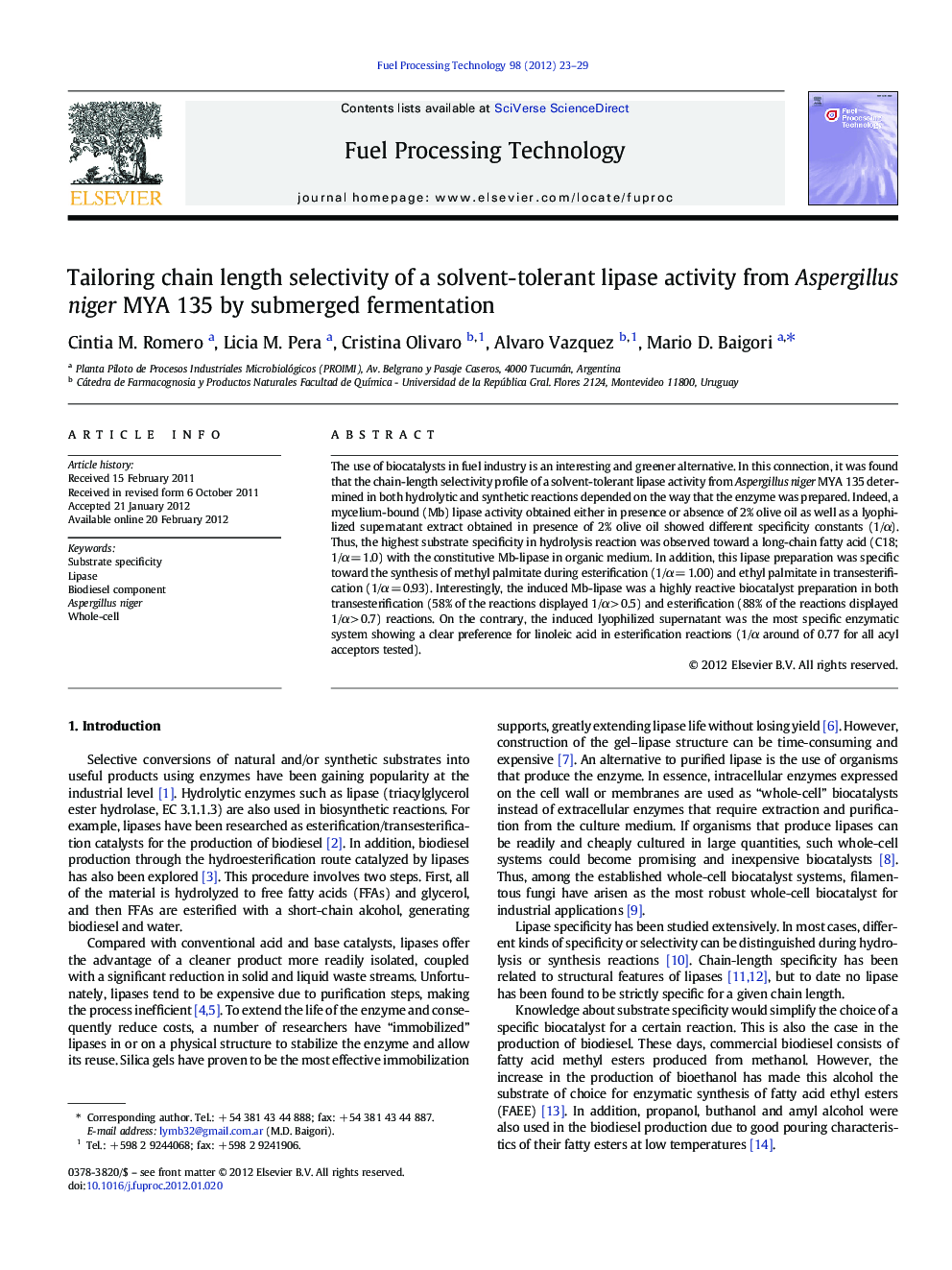| Article ID | Journal | Published Year | Pages | File Type |
|---|---|---|---|---|
| 210440 | Fuel Processing Technology | 2012 | 7 Pages |
The use of biocatalysts in fuel industry is an interesting and greener alternative. In this connection, it was found that the chain-length selectivity profile of a solvent-tolerant lipase activity from Aspergillus niger MYA 135 determined in both hydrolytic and synthetic reactions depended on the way that the enzyme was prepared. Indeed, a mycelium-bound (Mb) lipase activity obtained either in presence or absence of 2% olive oil as well as a lyophilized supernatant extract obtained in presence of 2% olive oil showed different specificity constants (1/α). Thus, the highest substrate specificity in hydrolysis reaction was observed toward a long-chain fatty acid (C18; 1/α = 1.0) with the constitutive Mb-lipase in organic medium. In addition, this lipase preparation was specific toward the synthesis of methyl palmitate during esterification (1/α = 1.00) and ethyl palmitate in transesterification (1/α = 0.93). Interestingly, the induced Mb-lipase was a highly reactive biocatalyst preparation in both transesterification (58% of the reactions displayed 1/α > 0.5) and esterification (88% of the reactions displayed 1/α > 0.7) reactions. On the contrary, the induced lyophilized supernatant was the most specific enzymatic system showing a clear preference for linoleic acid in esterification reactions (1/α around of 0.77 for all acyl acceptors tested).
► The use of biocatalysts in fuel industry is an interesting and greener alternative. ► The lipase chain-length selectivity depended on the way that the enzyme was prepared. ► Constitutive whole-cells were specific toward the synthesis of ethyl palmitate. ► Induced mycelium-bound lipase was a highly reactive biocatalyst preparation. ► Induced lyophilized supernatant was the most specific enzymatic system.
